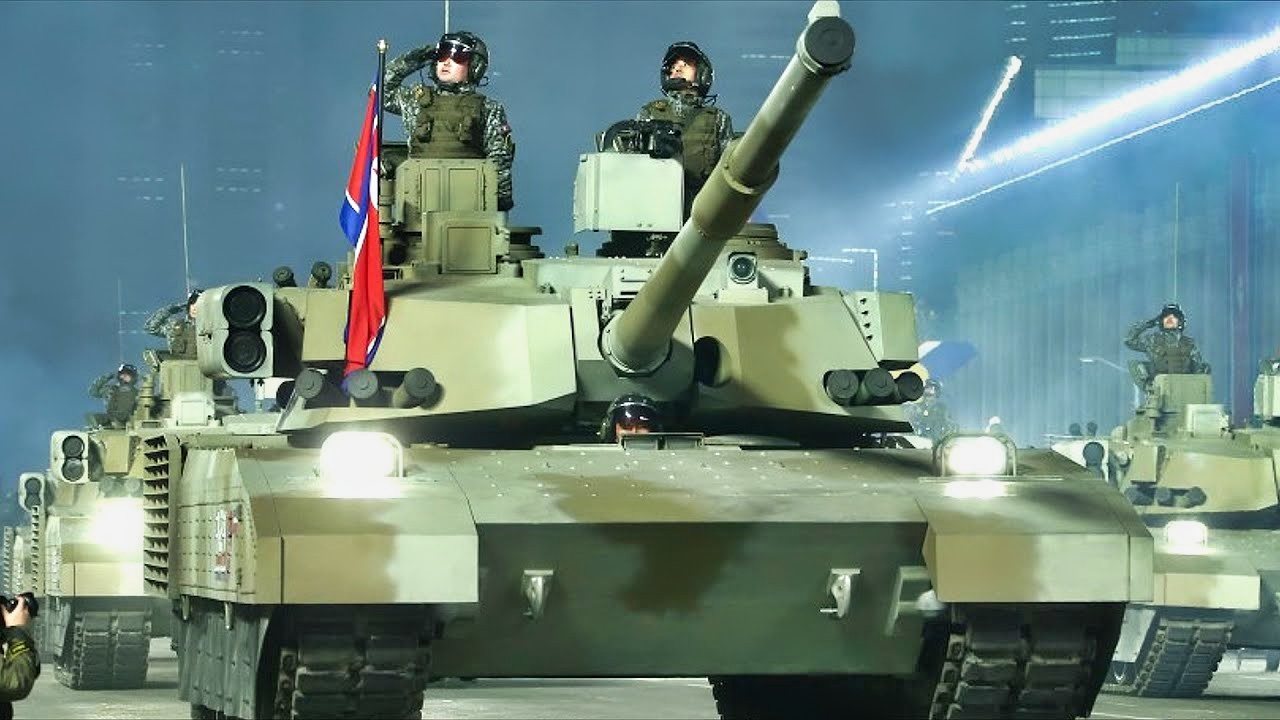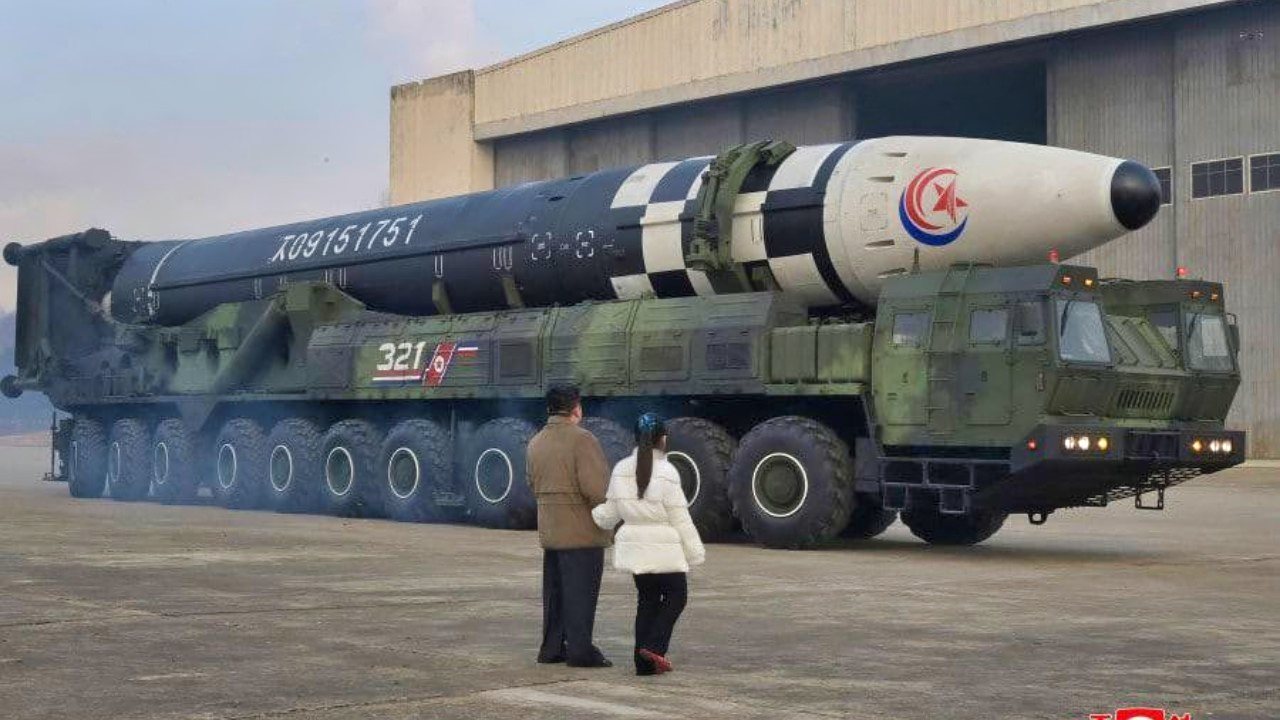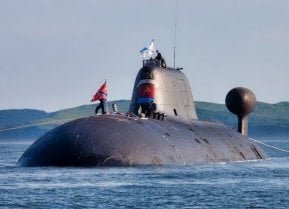Stronger Alliance or Nuclear Weapons? North Korea’s Military Might Means Tough Choices for South Korea
North Korea’s recent escalation in rhetoric, declaring South Korea as its “principal enemy,” may not signal an imminent military threat. Still, it does indicate a strategic shift with significant implications for regional stability.
Summary: North Korea's recent escalation in rhetoric, declaring South Korea as its "principal enemy," may not signal an imminent military threat but does indicate a strategic shift with significant implications for regional stability. This change comes as North Korea's advancing nuclear capabilities, including ICBMs that can reach the U.S., complicate the strategic calculus for South Korea and its allies.
North Korea's Harsh Rhetoric Shifts Regional Power Dynamics
In January of this year, Pyongyang’s language towards South Korea took on a new and much more bellicose tone. North Korea’s leader, Kim Jong-un, described the South as his country’s “principal enemy,” and announced that its citizens should no longer be regarded as “fellow countrymen,” foreshadowing the removal of the commitment to reunification from North Korea’s constitution. Some highly respected analysts have argued that this rhetorical shift indicates a sharply increased risk of North Korean military aggression across the DMZ. Others argue that nothing has really changed and that the new rhetoric simply reflects political maneuverings within North Korea rather than a substantial change in the threat it poses to the South.
I’d like to suggest a third interpretation: while the risk of a large-scale North Korean military assault on the South remains very low, Pyongyang’s newly hostile tone portends a very significant shift in the strategic balance on the Korean Peninsula, with important implications for America’s position in East Asia more broadly.

This interpretation reflects the profound but often underestimated consequences of North Korea’s growing nuclear and missile capabilities for the strategic situation in the Western Pacific. In recent years, Washington’s attention has shifted away from the North Korean problem, but it has not gone away. Pyongyang is now believed to have at least twenty nuclear weapons and perhaps the material to build seventy. It has also developed a range of increasingly sophisticated ballistic missiles to deliver them, including intercontinental-range ballistic missiles (ICBMs) that can reach the United States itself.
North Korea’s ICBMs fundamentally change the strategic calculations of all the key players and immensely increase the significance of North Korea’s nuclear arsenal. That is not because Pyongyang might mount an unprovoked nuclear attack on America itself—the certainty of massive U.S. retaliation makes sure of that. But it intensifies North Korean nuclear threats to U.S. allies by undermining the credibility of extended deterrence. Hitherto, it has been relatively easy for America to neutralize Pyongyang’s nuclear threat to South Korea and Japan. Its promises to mount devastating nuclear strikes on North Korea in retaliation for any North Korean nuclear attacks on U.S. allies or partners have been highly credible as long as North Korea could not hit America back.
Now, Pyongyang can respond to a U.S. retaliatory attack on North Korea with a counter-retaliatory nuclear strike on the United States. Washington would try to minimize this threat with preemptive strikes on North Korea’s ICBMs, but big risks would remain. The potential cost to America of fulfilling its extended deterrence promises to its allies is, therefore, much higher than it was before, so the risks of America reneging on them in a crisis are much higher, too.
That has enormous implications for strategic calculations in Seoul, Tokyo, and Pyongyang. Let’s start with Seoul. Pyongyang’s ability to strike the United States will radically undermine Seoul’s confidence in U.S. extended nuclear deterrence. South Korean decision-makers must now recognize the real danger that the North Koreans will convince themselves that they can launch a nuclear attack on South Korea without incurring a U.S. retaliatory strike on themselves because they believe that the threat of North Korean counter-retaliation against the United States itself would deter Washington.
This confronts Seoul with a real problem. The danger is not so much that Pyongyang would actually launch a nuclear attack on the South. It is that North Korea could use the threat of nuclear attack to compel the South to do its bidding. The more uncertain a U.S. retaliatory response becomes, the more credible a North Korean threat of this kind would be, and the more likely it becomes that Seoul would have no choice but to comply with whatever demands Pyongyang might make. Moreover, the harsh new tone of Pyongyang’s rhetoric towards the South makes it seem less unlikely that the North might try to use nuclear blackmail this way. By repudiating the idea of peaceful reunification and instead declaring South Korea to be an enemy that must be subdued by force, Kim Jong-un might be setting the scene for just this kind of confrontation.
What can Seoul do in the face of this new and grave danger? It has only two options. One is to try to strengthen the credibility of U.S. extended deterrence. The other is to cease depending on Washington and instead build its own nuclear forces to counter and neutralize North Korean nuclear threats. The second option must be taken very seriously. In January last year, President Yoon openly canvassed the idea that South Korea might need to build its own nuclear weapons to counter North Korea’s. Polling suggests that 60 to 70 percent of South Koreans would support this move. South Korea is well-placed technically to develop nuclear weapons and has already built ballistic-missile firing submarines to deliver them.
Although President Yoon quickly stepped back from his comments, Washington plainly took them seriously. A few months after he made them, Yoon was invited to the White House, where he and President Biden issued the “Washington Declaration,” in which ringing reaffirmations of America’s extended-deterrence commitment to defend South Korea were matched by equally plangent affirmations South Korea’s confidence in U.S. commitments and promises not to develop its own nuclear forces. The declaration announced new forums for closer consultation between Washington and Seoul on nuclear questions, including the establishment of a Nuclear Consultative Group modeled on NATO’s Nuclear Planning Group, and contained a U.S. promise to “further enhance the regular visibility of strategic assets to the Korean Peninsula” by more frequent visits by nuclear-capable U.S. forces.
However, the Biden Administration stopped short of taking two steps that would have more materially addressed Seoul’s concerns. It did not agree to the kind of “nuclear-sharing” arrangements that exist between the United States and some NATO allies. Nor did it agree to redeploy nuclear weapons to South Korea, which again contrasts with its continued basing of nuclear weapons in Europe. It seems Seoul asked for both, and Washington declined. It is worth reflecting on this.

In the face of the growing uncertainties about America’s resolve created by Pyongyang’s growing ICBM capability, Washington has refused to offer Seoul the same mechanisms of reassurance that it extended to its European allies since the Cold War. That is hardly reassuring. Indeed, it risks the Washington Declaration having an effect that is opposite to that intended. By setting such clear limits on what America is willing to do, it weakens rather than strengthens South Korean confidence in U.S. resolve. So, it is hardly surprising that the Washington Declaration has not assuaged South Korean concerns about the credibility of U.S. extended deterrence.
So what should the Biden Administration do instead? What would be required to fully convince both Seoul and Pyongyang of America’s resolve to defend South Korea, even at the risk of North Korean nuclear attacks on U.S. cities? When thinking about this, it is worth looking back at the Cold War.
For several decades, successive U.S. administrations successfully convinced both the Soviet Union and its NATO allies that it would fight a nuclear war and accept massive Soviet nuclear attacks on the United States itself in order to defend Western Europe. That worked because friend and foe alike believed that Washington saw the security of Western Europe as literally vital to America’s own survival in the face of the Soviet Union’s seemingly formidable power. As Thomas Schelling memorably put it in his 1966 book Arms and Influence, extended deterrence was credible in that era because all parties believed that for America, defending its allies in Europe was “defending California.” Only that made it credible that America would accept a nuclear attack on its own cities in order to defend its allies.
This clarifies the question at the heart of U.S. extended deterrence towards South Korea today in light of Pyongyang’s ability to launch a nuclear strike on the United States. Is America’s stake in the security of South Korea today comparable to its stake in the security of Western European allies during the Cold War? In other words, is South Korea’s security from the North literally vital to America’s own security in the Western Hemisphere? Could a North Korean victory over South Korea credibly lead to a looming direct threat to the United States itself—the way a Soviet victory in Western Europe could well have done?
This is a significant and complex question. What made the Soviet threat to Western Europe a truly existential question for America was the very real prospect, especially in the Cold War’s early decades, that if the Soviets took over Western Europe, they could go on to dominate the whole of Eurasia, and thereby put itself in a position to overpower America itself and dominate the world. Clearly, North Korea simply could not pose that kind of threat, with or without South Korea’s resources. But that is not the end of the matter. Failing to fulfill its extended deterrence commitments to Seoul would arguably destroy U.S. leadership throughout East Asia and beyond and fatally undermine the post-Cold War international order that that leadership underpins.


